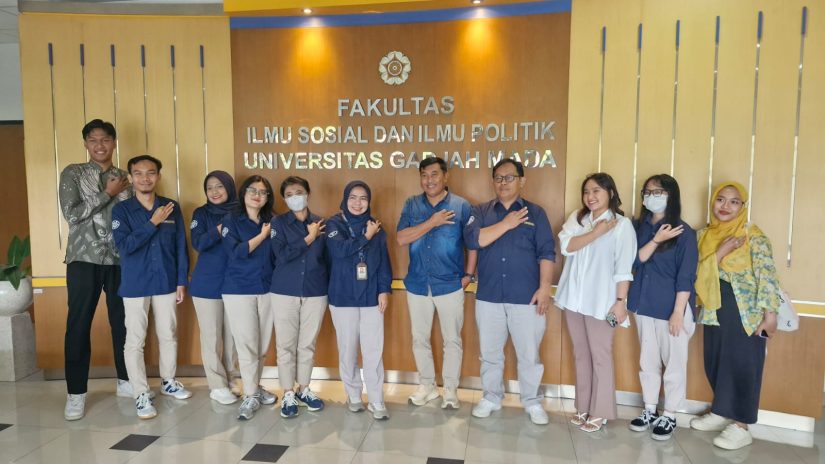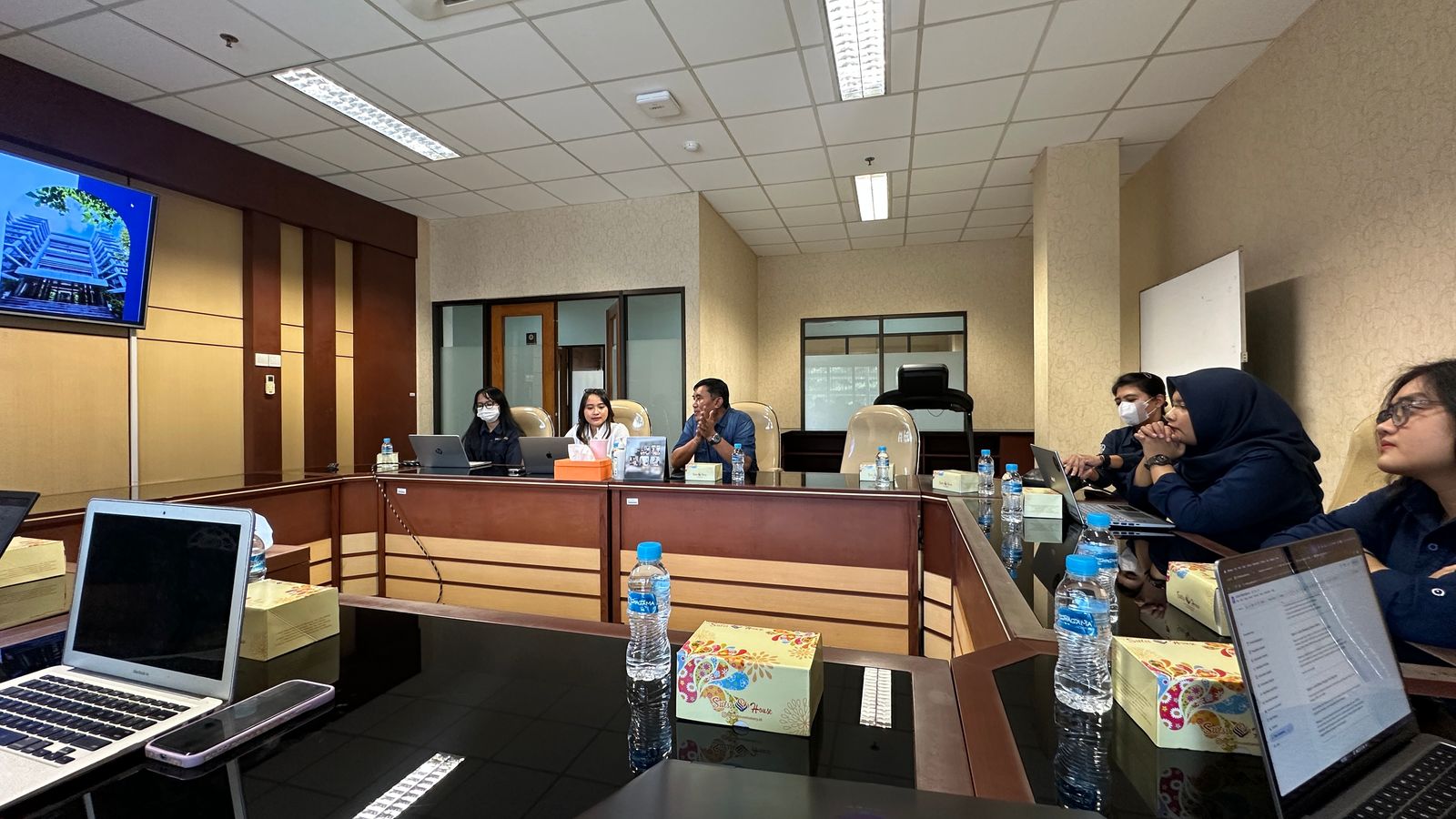
Yogyakarta, 16/4/25 — In an effort to enhance institutional communication management capacity, the Public Relations and Cooperation Unit of the Faculty of Cultural Sciences (FIB), Universitas Gadjah Mada (UGM), conducted a benchmarking visit to the Faculty of Social and Political Sciences (Fisipol) UGM on Wednesday, April 16, 2025. The primary aim of this visit was to study and analyze best practices implemented by Fisipol, particularly in the domains of social media management, digital communication strategies, and institutional reputation management, all of which are handled by the Faculty Secretary unit of Fisipol UGM.
During the visit, the FIB UGM team was received by Velina Aulia, the Social Media Manager and Alumni Relations Officer at the Fisipol Faculty Secretary. The session began with a comprehensive presentation outlining the organizational structure and workflow of the Faculty Secretary unit. The Faculty Secretary reports directly to the Dean and works in parallel with the Vice Deans responsible for academic affairs, research, finance, and human resources. This structural arrangement highlights the strategic significance of communication in supporting the faculty’s vision and mission, while also maintaining effective engagement with both internal and external stakeholders.

In the presentation, the Faculty Secretary team elaborated on the various digital platforms they manage. Instagram serves as the primary channel for dynamic and interactive content dissemination, while LinkedIn is utilized to engage alumni and professional partners. WhatsApp Business is designated for public-facing communications, whereas WhatsApp groups are used to distribute internal information among staff, faculty members, and students. Additionally, Fisipol UGM manages a knowledge-focused YouTube channel, operated by a dedicated division.
When elaborating on their content strategy, the Faculty Secretary introduced several communication pillars that form the foundation of their publication approach. The first pillar, “Good News Fisipol,” focuses on academic and student achievements, which tend to generate high levels of engagement. The second, “Info Fisipol,” delivers academic and service-related announcements using formal and standardized language. The third, “Sudut Fisipol” (Fisipol Corner), features lighter, narrative-driven, and personalized content, such as compelling stories from student activities or daily life within the Fisipol academic community.
Furthermore, the Faculty Secretary emphasized the importance of responsiveness in public communication, with a standard response time of no more than 24 hours. Nonetheless, in addressing negative feedback, a selective policy is applied—responses are only issued if the issue in question is collective in nature and has broader implications for the institution.
One notable aspect of Fisipol’s communication practices is their ability to craft meaningful narratives from seemingly ordinary events. Moments such as orchid planting, the presence of campus cats, or other routine campus occurrences are thoughtfully incorporated into communication content to foster emotional resonance and strengthen the connection between the institution and its audience.
This benchmarking visit provided valuable insights for the FIB UGM Public Relations and Cooperation team, particularly in understanding how strategic communication and institutional reputation management can be carried out in a structured, data-driven manner that aligns with the evolving dynamics of the digital era. It is hoped that the lessons learned from this visit will contribute to the advancement of communication and cooperation practices within FIB UGM in the near future.
[Public Relation of Faculty of Cultural Sciences, Muhammad Ebid El Hakim]

